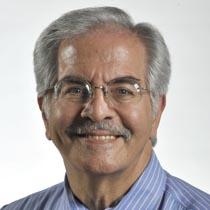Grand juries do important work.
They determine whether individuals have committed a crime worth prosecuting. They receive criminal complaints, listen to evidence presented by prosecutors, occasionally call witnesses … and then grand jurors deliberate among themselves about the fate of the individual named in the complaint.
Do they prosecute or do they decide there’s insufficient evidence to follow through?
It’s important, but it’s not rocket science. It does not require special training. And to be chosen for a grand jury, one need not rely on judges picking jury commissioners, who then select their friends, acquaintances or professional associates to serve on the grand jury.
The state’s antiquated grand jury selection system is set to change effective Sept. 1. Texas will allow grand juries to be chosen by the same method it chooses trial juries.
The Legislature enacted a bill, which Gov. Greg Abbott signed into law, that eliminates the “pick a pal” system that critics said left the old system open to possible conflict of interest. If a judge wants to “get” someone, he or she can pick jury commissioners who then can look for individuals to serve on the grand jury who might be disposed to follow through with the judge’s desire.
Is such a scenario rampant in Texas? I haven’t heard of it. But the random selection method, where grand juror are picked from voter registration rolls, eliminates the possibility of stacking a grand jury.
“It sort of cancels out the previous system whereby the judges simply picked people that he or she knows or feels comfortable with, and I think we’ve seen the result of that,” said Douglas Smith, a policy analyst for the Texas Criminal Justice Coalition. “Grand juries tend to be white, they tend to be older, so they tend not to represent the broader perspectives in the community.”
And so, with a random selection method enacted, grand juries perhaps can more accurately reflect the communities they serve.
This is a needed reform of the Texas criminal justice system.
